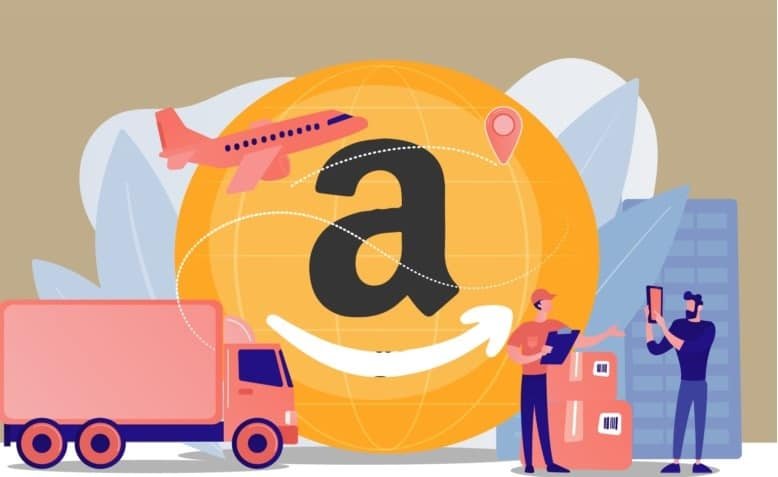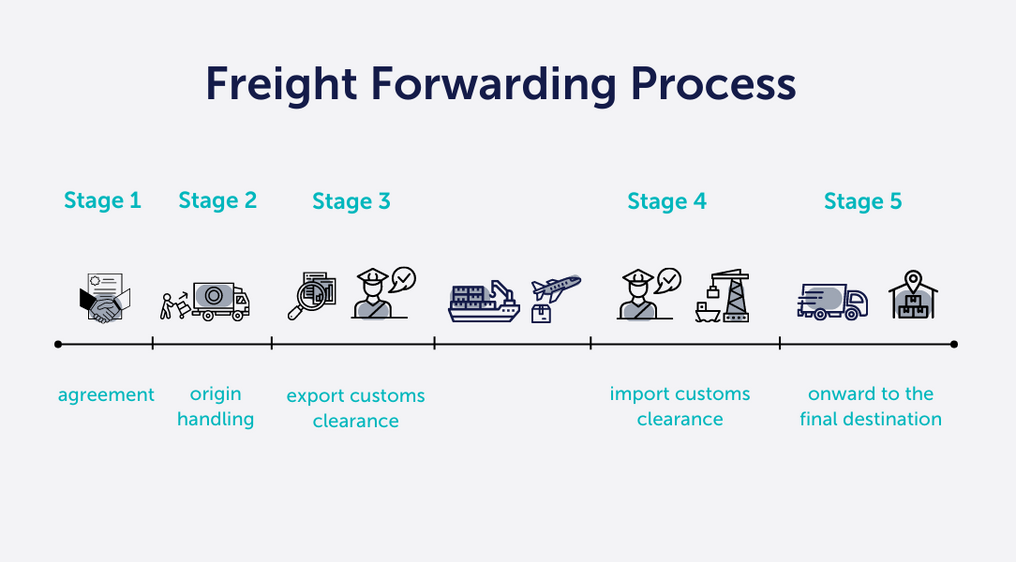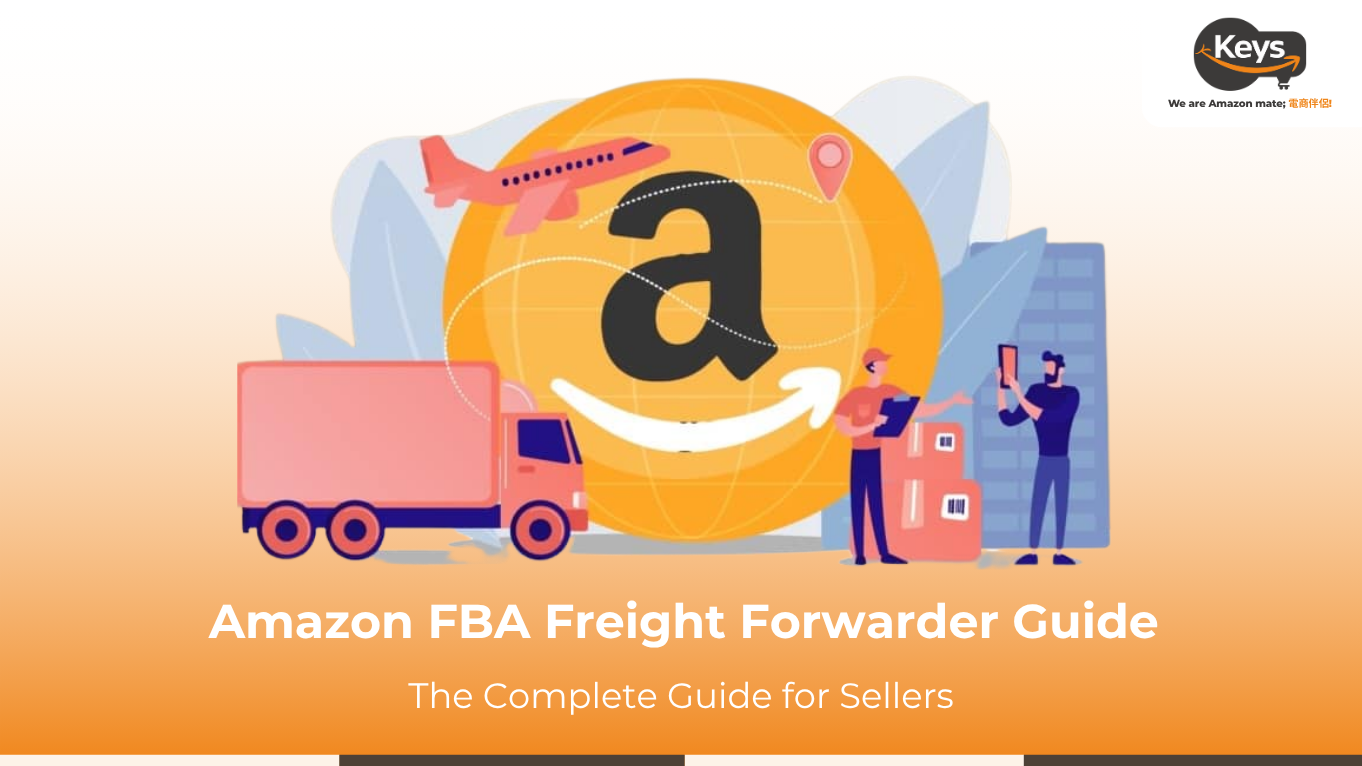Shipping globally as an Amazon seller involves more than just moving products—it requires precision, compliance, and strategic coordination. An experienced Amazon FBA freight forwarder can help streamline international logistics, ensuring smooth customs clearance and cost-effective delivery. In this guide, we’ll walk you through the services, benefits, and tips for choosing the right freight partner. Whether you’re scaling operations or just starting out, understanding FBA freight forwarding is key to global success.
What is an Amazon FBA freight forwarder?
An Amazon FBA freight forwarder is a logistics service provider that manages the transportation of goods from an overseas supplier to an Amazon fulfillment center or third-party warehouse. They handle every stage of the international shipping process – including booking cargo space, preparing customs documents, and ensuring compliance with Amazon’s strict delivery requirements.
By leveraging their global expertise, an Amazon FBA freight forwarder simplifies complex logistics, reduces the risk of delays, and ensures your inventory reaches Amazon efficiently and on time. This service is essential for e-commerce sellers navigating cross-border trade and seeking streamlined, reliable fulfillment.

What Services Does an Amazon FBA Freight Forwarder Provide?
An Amazon FBA freight forwarder offers a range of essential services designed to streamline the shipping process for sellers. Here are the key services they provide:
- International shipping coordination (Air/Sea/Land): Freight forwarders manage the logistics of transporting goods across borders using various modes of transportation, including air, sea, and land. This coordination ensures that your products reach Amazon fulfillment centers efficiently and on time.
- Customs clearance: Navigating customs regulations can be complex, but an Amazon FBA freight forwarder simplifies this process. They handle all necessary documentation and compliance requirements, ensuring that your shipments clear customs smoothly and without delays.
- Freight management: Freight forwarders optimize shipping routes and select the most suitable carriers to manage costs and delivery times effectively. This service helps sellers save money while ensuring timely delivery of their products.
- Warehousing: Many freight forwarders offer warehousing solutions, allowing sellers to store their inventory before it is shipped to Amazon. This can be particularly beneficial for managing stock levels and preparing for peak sales periods.
- Last-mile delivery: Some freight forwarders also handle last-mile delivery, which involves transporting products from the fulfillment center to the end customer. This service ensures that your products reach customers quickly and efficiently, enhancing the overall shopping experience.
How Does the Freight Forwarding Process Work?
The freight forwarding process is a crucial aspect of international shipping, especially for Amazon sellers utilizing an Amazon FBA freight forwarder. Here’s a step-by-step overview of how this process typically works:
- Initial consultation: The process begins with a consultation between the seller and the freight forwarder. During this stage, the seller provides details about their products, shipping requirements, and destination. This information helps the freight forwarder develop a tailored shipping plan.
- Booking and documentation: Once the shipping plan is established, the freight forwarder handles the booking of transportation. They prepare all necessary documentation, including the Bill of Lading, commercial invoices, and any export licenses required for customs clearance.
- Transportation coordination: The freight forwarder coordinates the movement of goods using the most suitable mode of transport – be it air, sea, or land. They select carriers, negotiate rates, and manage logistics to ensure efficient transit.
- Customs clearance: As shipments cross international borders, customs clearance is a critical step. The freight forwarder ensures that all documentation is in order and complies with local regulations, facilitating a smooth customs process to avoid delays.
- Warehousing and Inventory Management: Many freight forwarders offer warehousing services, allowing sellers to store their products before they are shipped to Amazon fulfillment centers. This can help manage inventory levels and prepare for peak sales periods.
- Last-Mile Delivery: After reaching the destination country, the freight forwarder may also handle last-mile delivery, ensuring that products are transported from the fulfillment center to the end customer efficiently.
- Tracking and Support: Throughout the shipping process, the freight forwarder provides tracking information and support, keeping sellers informed about the status of their shipments and addressing any issues that may arise.

Key Freight Forwarding Terminology and Their Functions
Understanding key freight forwarding terminology is essential for anyone involved in shipping, especially for Amazon sellers working with an Amazon FBA freight forwarder. Here are some important terms and their functions:
- Shipper/Consignor: The shipper, also known as the consignor, is the individual or company that owns the goods being transported. They initiate the shipment and are responsible for providing the necessary documentation to the freight forwarder to facilitate the shipping process.
- Freight forwarder: A freight forwarder is a third-party logistics provider that specializes in arranging the transportation of goods on behalf of the shipper. They manage various aspects of the shipping process, including booking cargo space, handling documentation, and ensuring compliance with customs regulations. Their expertise helps streamline the logistics of moving products internationally.
- Shipping agent: A shipping agent acts as a representative for shipping lines or carriers. They handle tasks related to cargo operations, such as booking shipments, managing documentation, and coordinating vessel services. Shipping agents play a crucial role in ensuring that shipments are processed efficiently at ports and terminals.
Important Shipping Terms for FBA Sellers
When engaging in international shipping as an Amazon seller, understanding key shipping terms is essential for smooth operations. Here are some important terms you should know:
- FOB (Free on Board): This term indicates that the seller is responsible for the goods until they are loaded onto the shipping vessel. Once the goods are on board, the buyer assumes responsibility for them, including costs and risks associated with transportation.
- CIF (Cost, Insurance, and Freight): Under CIF terms, the seller covers the costs of shipping, insurance, and freight to the destination port. This means that the seller is responsible for the goods until they reach the port of destination, providing a level of security for the buyer.
- EXW (Ex Works): This term places the minimum responsibility on the seller. The seller makes the goods available at their premises, and the buyer is responsible for all transportation costs and risks from that point onward.
- Bill of lading (BOL): A crucial document in shipping, the Bill of Lading serves as a receipt for the goods and a contract between the shipper and the carrier. It outlines the details of the shipment and is necessary for customs clearance.
- FCL (Full Container Load): This term refers to a shipment that occupies an entire shipping container. FCL shipments are often more cost-effective for larger quantities of goods, as they minimize handling and potential damage.
- LCL (Less than Container Load): In contrast to FCL, LCL refers to shipments that do not fill an entire container. Multiple shipments from different shippers may be consolidated into one container, which can be a cost-effective option for smaller shipments.
- Commercial invoice: This document details the transaction between the buyer and seller, including product descriptions, quantities, and prices. It is essential for customs clearance and serves as proof of the sale.
- HS code (Harmonized System Code): The HS Code is an internationally standardized system of names and numbers used to classify traded products. It is crucial for customs purposes and helps determine tariffs and duties.
- Export license: This is a government document that authorizes the export of specific goods to particular destinations. Depending on the product and destination, an export license may be required to comply with trade regulations.
- Inspection certificate: This document certifies that the goods have been inspected and meet the required standards. It is often necessary for customs clearance and can help prevent delays.
- Packing list: A packing list provides detailed information about the contents of a shipment, including item descriptions, quantities, and packaging details. It is essential for both the shipper and the receiver to ensure accuracy during transit.
- Special certificates: Certain products may require additional certifications, such as phytosanitary certificates for agricultural goods or certificates of origin. These documents help ensure compliance with import regulations
- Proof of delivery (POD): This document confirms that the goods have been delivered to the recipient. It is important for record-keeping and can be used to resolve disputes regarding delivery
- Customs bond: A customs bond is a contract between the importer, the surety, and the customs authority that ensures compliance with customs regulations. It is often required for shipments to guarantee payment of duties and taxes.

Does Amazon Provide Freight Forwarding Services?
While Amazon does not directly operate as an Amazon FBA freight forwarder, it offers freight forwarding support through its service known as Amazon Global Logistics (AGL). This program enables FBA sellers to ship goods from select countries to Amazon fulfillment centers using Amazon’s preferred carriers.
However, AGL is limited in scope and availability, which is why many sellers still rely on third-party Amazon FBA freight forwarder partners for greater flexibility, tailored services, and end-to-end support. Choosing the right freight forwarder ensures better control over costs, compliance, and delivery timelines in global FBA shipping.
Should You Use a Freight Forwarder for FBA Shipments?
Using an Amazon FBA freight forwarder can be a game-changer for your business, offering several significant advantages that can enhance your shipping experience. Here are some key reasons to consider partnering with a freight forwarder for your FBA shipments:
- Time and cost savings: Freight forwarders can help you save both time and money by optimizing shipping routes and consolidating shipments. Their expertise allows them to negotiate better rates with carriers, which can lead to lower shipping costs for your business. This efficiency means you can focus more on growing your business rather than getting bogged down in logistics.
- Simplified customs and compliance: Navigating customs regulations can be complex and time-consuming. An Amazon FBA freight forwarder specializes in handling customs clearance and compliance, ensuring that all necessary documentation is in order. This reduces the risk of delays and penalties, allowing your shipments to move smoothly across borders.
- Reduced shipping errors and delays: With their experience in logistics, freight forwarders can significantly minimize shipping errors and delays. They understand the specific requirements of Amazon and can ensure that your products are prepared and shipped correctly, which helps maintain your seller rating and customer satisfaction.
- Professional logistics support: Partnering with a freight forwarder provides you with access to professional logistics support. They can manage various aspects of the shipping process, from warehousing to last-mile delivery, allowing you to streamline your operations and enhance your overall efficiency.
When Should You Use a Freight Forwarder?
Utilizing an Amazon FBA freight forwarder can be incredibly beneficial in various scenarios. Here are some key situations when you should consider partnering with a freight forwarder:
- Handling international trade: If your business involves importing or exporting goods across borders, a freight forwarder can streamline the process. They have the expertise to navigate the complexities of international shipping, ensuring compliance with regulations and smooth transit.
- Managing complex shipping operations: For businesses with intricate logistics needs, such as multiple suppliers or diverse shipping routes, a freight forwarder can simplify operations. They coordinate various aspects of shipping, from transportation to documentation, allowing you to focus on your core business.
- Planning for global market expansion: If you’re looking to expand your business into new international markets, a freight forwarder can provide valuable insights and support. They can help you understand local regulations, shipping requirements, and market conditions, making your expansion smoother.
- Ensuring customs compliance: Customs regulations can be daunting, but a freight forwarder specializes in ensuring that all necessary documentation is in order. This minimizes the risk of delays and penalties, allowing your shipments to clear customs efficiently.
- Reducing shipping costs through optimization: Freight forwarders have the knowledge and resources to optimize shipping routes and methods, which can lead to significant cost savings. They can negotiate better rates with carriers, helping you reduce overall shipping expenses.
- Needing help with Amazon FBA packaging and labeling: If you’re selling on Amazon, adhering to their specific packaging and labeling requirements is crucial. A freight forwarder can assist you in ensuring that your products meet these guidelines, preventing potential issues with your shipments.
- Improving time efficiency: By managing logistics and shipping processes, freight forwarders can help you save time. This efficiency allows you to focus on other important aspects of your business, such as marketing and customer service.
- Minimizing risk in global logistics: Shipping internationally comes with inherent risks, including delays and damage. A freight forwarder can help mitigate these risks by providing insurance options and expert guidance throughout the shipping process.
- Selling on Amazon FBA or running an E-commerce store: If you’re an Amazon seller or operate an e-commerce store, a freight forwarder can be an invaluable partner. They understand the unique challenges of e-commerce logistics and can help you navigate them effectively.
- Requiring specialized shipping knowledge: If your products require specific handling or shipping methods, a freight forwarder with specialized knowledge can ensure that your goods are transported safely and efficiently. This expertise is particularly important for sensitive or high-value items.

How to Choose the Right Amazon FBA Freight Forwarder
Selecting the right Amazon FBA freight forwarder is crucial for ensuring smooth logistics and successful shipping operations. Here are some key factors to consider when making your choice:
- Proven industry experience: Look for a freight forwarder with a solid track record in the industry. Experience in handling Amazon FBA shipments specifically can be a significant advantage, as they will be familiar with the unique requirements of e-commerce logistics.
- Strong reputation and trustworthiness: Research the freight forwarder’s reputation by reading reviews and testimonials from other sellers. A trustworthy partner will have positive feedback and a history of reliable service.
- Extensive global network: A freight forwarder with a broad global network can facilitate smoother shipping processes and provide access to various transportation options. This network is essential for managing international shipments effectively.
- Stable financial standing: Ensure that the freight forwarder has a stable financial background. This stability can indicate their ability to handle your shipments without disruptions and invest in necessary resources.
- Comprehensive insurance options: Choose a freight forwarder that offers robust insurance options to protect your shipments. Adequate insurance coverage is vital for safeguarding your products against potential losses during transit.
- Responsive customer support: Effective communication is key in logistics. A good freight forwarder should provide responsive customer support, addressing your inquiries and concerns promptly.
- Modern technology and Real-Time tracking: Look for a freight forwarder that utilizes advanced technology for tracking shipments. Real-time tracking capabilities enhance transparency and allow you to monitor your shipments throughout the shipping process.
- Expertise in compliance and regulations: A knowledgeable freight forwarder will be well-versed in customs regulations and compliance requirements. This expertise helps ensure that your shipments clear customs smoothly and without delays.
- Clear and transparent pricing: Choose a freight forwarder that offers clear and transparent pricing structures. Understanding all costs involved upfront can help you avoid unexpected fees and manage your budget effectively.
- Tailored and value-added services: Consider whether the freight forwarder provides tailored services that meet your specific needs. Value-added services, such as warehousing or packaging assistance, can enhance your overall shipping experience.

Keys Logistics: Your Trusted Amazon FBA Freight Forwarder
Keys Logistics is a trusted Amazon FBA freight forwarder dedicated to helping sellers navigate complex global shipping with ease and efficiency. With strategically located warehouses and a robust international network, we manage every step of the supply chain – from factory pickup to customs clearance and final delivery to Amazon fulfillment centers. Our tech-enabled solutions ensure real-time tracking, accurate documentation, and full compliance with Amazon’s FBA requirements.
We offer flexible freight options (air, sea, and ground), competitive pricing, and seamless integration with your eCommerce platforms. Whether you’re scaling to new markets or optimizing existing operations, Keys Logistics is your reliable logistics partner for consistent, on-time delivery.
FAQs About Amazon FBA Freight Forwarders
How Much Does a Freight Forwarder Cost for Amazon FBA?
The cost of using a freight forwarder for Amazon FBA can vary widely based on several factors, including the size and weight of your shipment, the mode of transportation (air, sea, or land), and additional services required (like customs brokerage or insurance). Generally, costs can range from a few hundred to several thousand dollars per shipment, depending on these specifics.
Does Amazon Offer Free Freight Forwarding for FBA Sellers?
Amazon does not offer free freight forwarding services for FBA sellers. However, they do provide various shipping credits and discounts for new sellers, such as $100 off shipments into the Amazon fulfillment network when using the Amazon Partnered Carrier program.
What Is the Difference Between a Freight Forwarder and a Shipping Carrier?
A freight forwarder acts as an intermediary that manages the logistics of shipping goods, including booking cargo space, handling documentation, and ensuring compliance with regulations. In contrast, a shipping carrier is the actual company that physically transports the goods, such as an airline or shipping line.
How Do I Track My Shipment with a Freight Forwarder?
Most freight forwarders provide tracking services that allow you to monitor your shipment in real-time. You can typically access tracking information through their online platform or by contacting their customer support for updates on your shipment’s status.
To sum up, choosing the right Amazon FBA freight forwarder can dramatically improve your global shipping operations, ensuring speed, compliance, and cost-efficiency. Whether you’re managing high volumes or expanding into new markets, an experienced freight partner will help you navigate logistics complexity with ease. From customs clearance to last-mile delivery, each step matters in sustaining your brand’s success on Amazon. Make informed decisions—and move your products with confidence.
Need a reliable Amazon FBA freight forwarder? Contact Keys Logistics today for tailored solutions, real-time tracking, and expert global support.












 Tiếng Việt
Tiếng Việt 中文 (中国)
中文 (中国)

